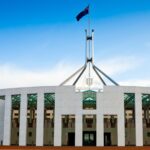The independent review of Medicare compliance must make it fairer and simpler for doctors, advocates say.
Rejecting media claims that Medicare is leaking $8 billion due to fraud, inappropriate billing or overservicing, Health Minister Mark Butler has commissioned an independent review of MBS compliance.
The review will be led by health economist Dr Pradeep Philip, a former secretary of the Victorian health department and now lead partner at Deloitte Access Economics.
Dr Philip’s review will examine the “integrity of Medicare and its compliance mechanisms”. An interim report will be submitted by 31 January 2023, with the final report to be handed down by 28 February 2023.
Following reports by Nine newspapers and the ABC’s 7.30 program, Mr Butler called for an internal review of compliance.
He also ordered the Department of Health to examine the PhD thesis of Dr Margaret Faux, who scrutinised Medicare billing in her thesis. Much of the media reporting was based on her claims about the research, yet the estimates in the thesis come nowhere near the $8bn number cited (nor does it argue that any substantial proportion of the leakage is due to conscious fraud).
Experts from every part of the medical community rejected the $8bn figure and the DoH now agrees with them.
“The [DoH] report found no evidence of the $8bn in Medicare fraud and inappropriate billing estimated by Dr Faux,” Mr Butler said over the weekend.
“My department reported on the existing compliance efforts, along with a rundown of the various estimates on the scale of the problem from the Australian National Audit Office [in 2020] and others.
“I’ve asked Dr Philip to measure and report on the true extent of non-compliance in Medicare and to identify fixes.”
According to the terms of reference:
- The review will consider new measures and controls to reduce the risk of fraudulent billing or overservicing before payments are made, as well as ways to slow, deter and prevent incorrect claiming, such as authorisations.
- It will assess risk within Medicare payment systems and multiple claims channels, including whether some channels are more susceptible to misuse and fraud, and look at ways to minimise this risk.
- It will assess the possible value of fraudulent, non-compliant or over-servicing risks within Medicare through an evidence-based estimate.
- The review will assess the effectiveness, transparency and independence of the Practitioner Review Program and PSR “to identify and scope opportunities for improvements”, including to serious non-compliant behaviours that do not constitute fraud and are not considered auditable under current legislation.
- It will review the Health Insurance Act and other associated regulations to identify potential improvements to controls and the penalties for fraud, inappropriate practice and non-compliance. It will also consider the effectiveness of current law in the treatment of non-compliance in bodies that are not healthcare providers.
- Finally, the review will assess the effectiveness of the methods currently used to recover debts and the processes for escalation for repeated non-compliance.
According to the terms of reference, “the primary aim of the review is to consider whether regulation, enforcement and compliance settings are adequately balanced against policy and service priorities”.
While the terms reference “improvement” of compliance mechanisms, however, there is no explicit mention of improvements that would benefit practitioners, as opposed to patients or government.
The announcement of the review should be welcomed, said Associate Professor Gino Pecoraro, chair of advocacy and support group Australian Health Practitioners Advisory Solutions (AHPAS). However, he emphasised its scope needed to be broad enough to take practitioners’ positions into account.
“The review needs to look at all of the legislation, including what happens to someone who’s investigated and accused of doing the wrong thing,” Professor Pecoraro told TMR. “At the moment, if you’re accused, you don’t have procedural fairness.
“We need the legislation changed so that if you are under review, you can be represented by appropriately trained legal representatives to represent your best interests and that they are allowed to speak on your behalf – and of course, you must be innocent until proven guilty.
“I think we also need to mandate that anybody being investigated has a mental health professional allocated to them to keep in contact with them, because we know these sorts of things have been associated with doctor suicides in Australia, and we’re now facing an epidemic of doctor suicides.”
Professor Pecoraro is also concerned about the lack of rules and information around how to bill correctly.
“If the people who are supposed to administer the legislation don’t know how to do it safely, properly, and within the limits of the law, how do you expect anybody else in the community to do that?” he said.
“There needs to be simplification, because if all of a sudden, they make it so complicated that everyone who uses Medicare to get rebates for their patients has to employ another person to make sure they’re working within the absolute letter of the law, that’s going to significantly increase the costs for patients.”
Education in the MBS system should also be included in a healthcare professional’s training, he said.
“I’d probably do it at the college level, whether you’re a GP or a specialist, and have a part of the curriculum that ensures you understand how the system works – and I think that should be funded by the federal government,” he said.
The AMA said advice on the MBS provided by the DoH was often confusing and inconsistent. It was important that the review focus on supporting health professionals to navigate the complex Medicare system and not simply result in more red tape and bureaucracy, taking valuable consultation time away from doctors, the association said.
AMA president Professor Steve Robson welcomed Mr Butler’s dismissal of the claims of massive rorting.
“The AMA analysed the documentation these media reports relied on and like the department found nothing — not a skerrick of evidence — to support the claims made in headlines splashed across some news organisations,” Professor Robson said.
A 2020 Australian National Audit Office (ANAO) report estimated the value of Medicare non-compliance at between $366 million and $2.2 billion per year.







